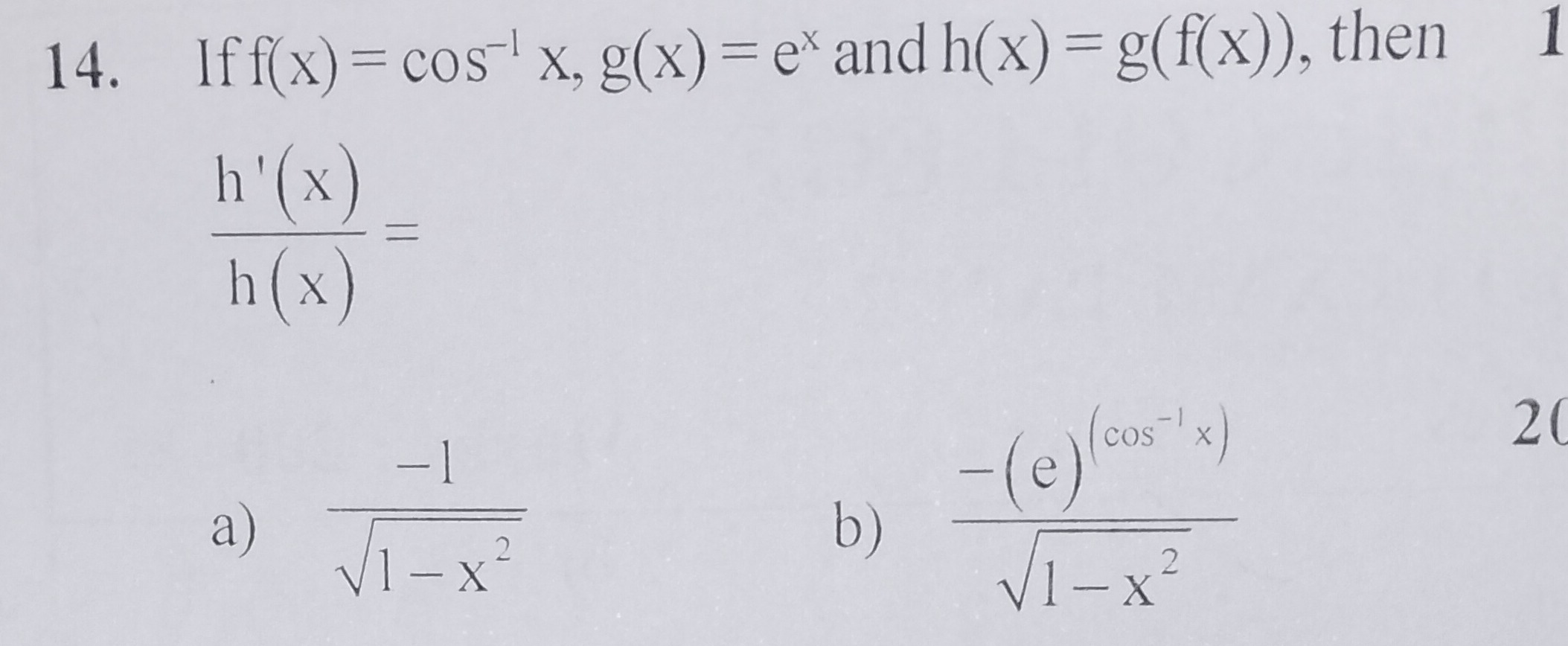Question
Question: If f(x) = cos⁻¹ x, g(x) = eˣ and h(x) = g(f(x)), then 1 $\frac{h'(x)}{h(x)} =$...
If f(x) = cos⁻¹ x, g(x) = eˣ and h(x) = g(f(x)), then 1
h(x)h′(x)=

A
1−x2−1
B
1−x2−(e)(cos−1x)
Answer
a) 1−x2−1
Explanation
Solution
Solution Explanation:
Given:
h(x)=ecos−1(x)Differentiate using the chain rule:
h′(x)=ecos−1(x)⋅dxd(cos−1(x))=ecos−1(x)⋅(1−x2−1)Therefore:
h(x)h′(x)=ecos−1(x)ecos−1(x)⋅(1−x2−1)=1−x2−1